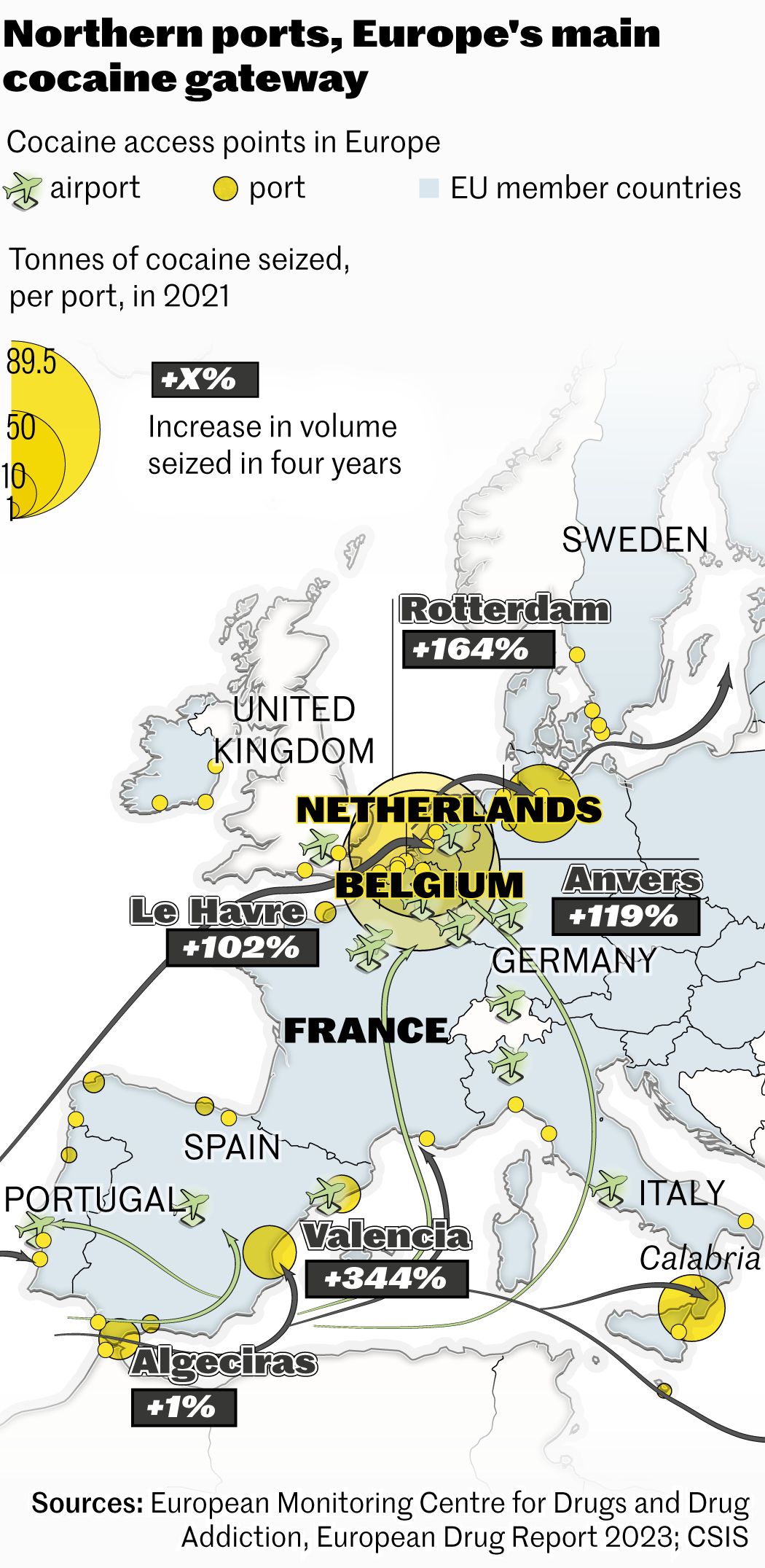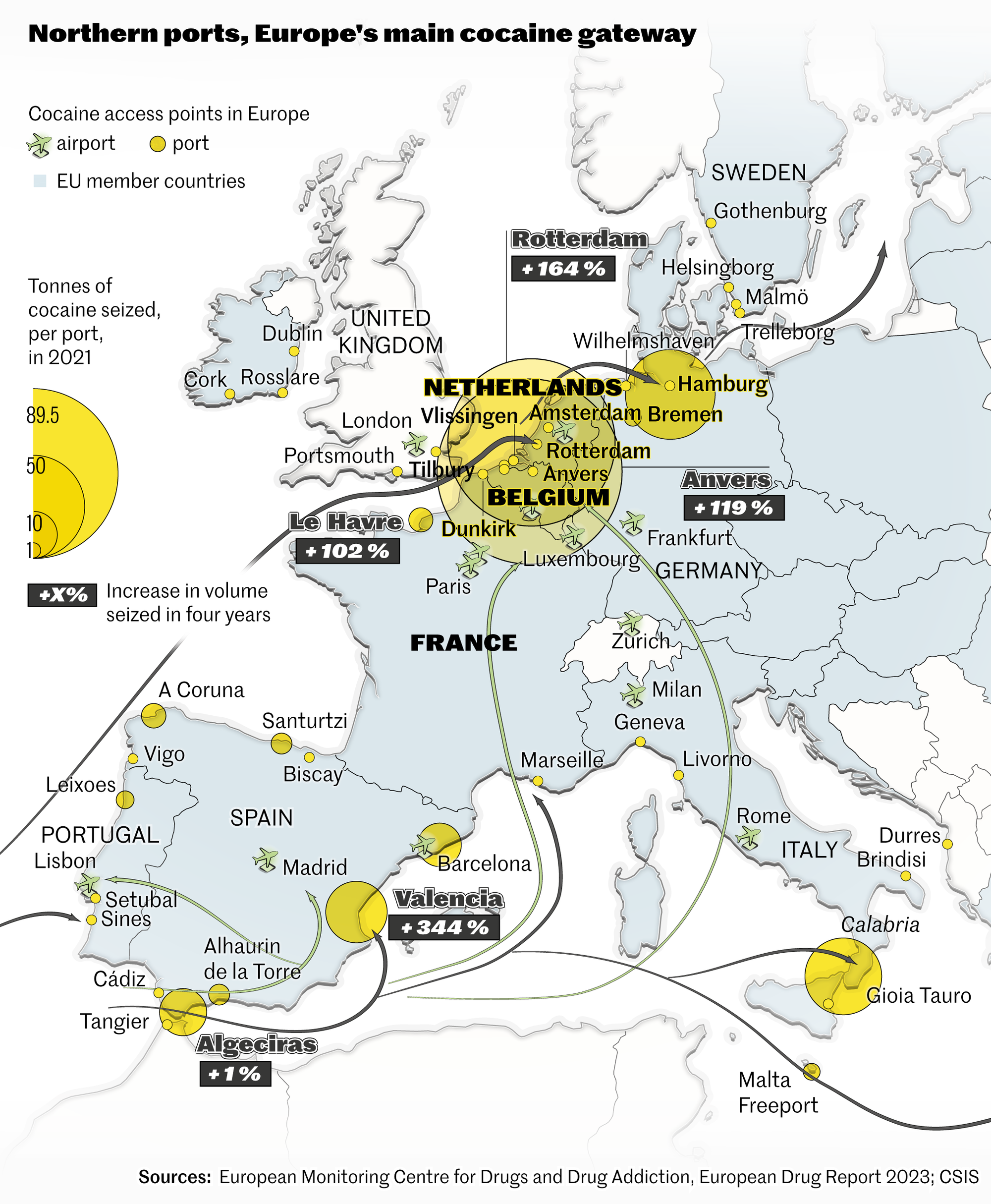


Former King's Prosecutor at the Hal-Vilvoorde prosecutor's office in the Flemish suburbs of Brussels, Ine Van Wymersch has been Belgium's national drugs commissioner since April, a position created to coordinate Belgium's fight against drug trafficking. There have been record cocaine seizures in Antwerp, with an explosion in drug-related violence in this Flemish port and in the capital, and also a proliferation in clandestine synthetic drug laboratories and cannabis production. These are crucial issues for this country at the heart of Europe, which will take on the rotating presidency of the European Union (EU) from January 1, 2024.
Has Belgium become a narco-state? My answer is a concrete no. Has Belgium become a strategic logistics hub for organized crime? Yes, it certainly has. Does that mean we're vulnerable in one way or another? Yes, that's clear too. But I'm seeing a general awareness, on the part of authorities and businesses alike. And the time to act is now.


The more obstacles we put in the way of criminal organizations, the more they react by amplifying their level of violence. This is particularly the case in Antwerp, and the situation may get worse in the short term, before a general improvement. But we won't succeed in securing the port's terminals just by increasing staff numbers. We're also looking at how artificial intelligence can help us, particularly in analyzing suspicious movements recorded by surveillance cameras. Then, a national contact point, dubbed "Portwatch," will soon be operational. This will enable anyone to anonymously report suspicious activity in a Belgian port. The information will be immediately accessible to the judicial police. The vigilance of law enforcement and security forces will be complemented by that of all port infrastructure personnel.
But focusing on the port is not enough. We need, for example, to act more effectively against fraudulent investments and money laundering: targeting traffickers' properties, their assets, their money. A federal law on "the administrative approach," adopted [on November 16] by parliament, aims to give local authorities more means for monitoring and closing down businesses involved in crime. This is similar to seizures carried out in terrorism and radicalization cases. This approach may seem laborious, but it is effective.
You have 75% of this article left to read. The rest is for subscribers only.
